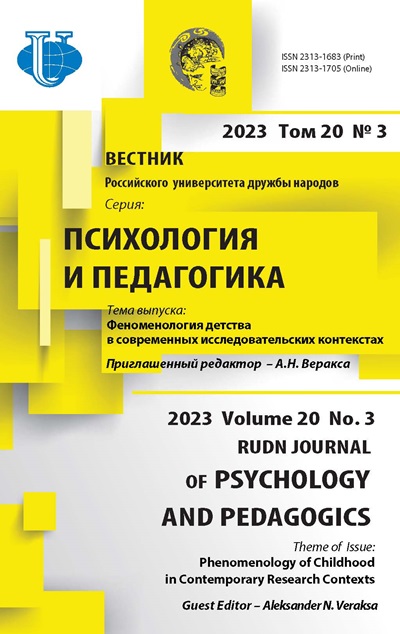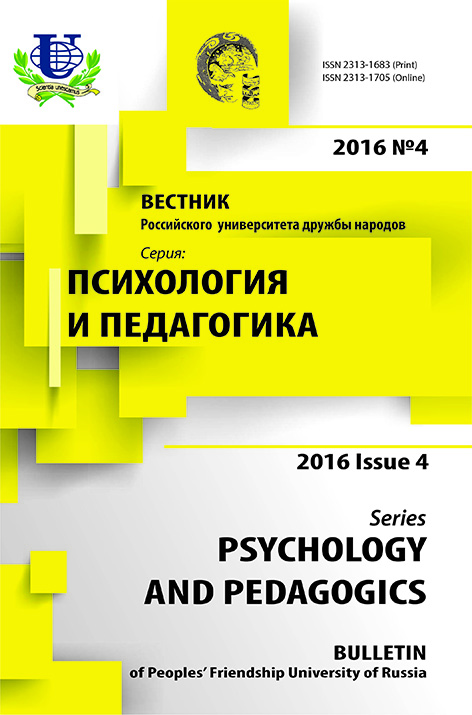CONTEXT AND EMPIRICAL APPROACH TO FORMATION OF MATHEMATICAL COMPETENCE IN STUDENTS OF HUMANITARIAN TRAINING DIRECTIONS AT UNIVERSITY
- Authors: Shcherbatykh SV1, Megrikyan IG2
-
Affiliations:
- Yelets State Bunin University
- Adyghe State University
- Issue: No 4 (2016)
- Pages: 88-97
- Section: Articles
- URL: https://journals.rudn.ru/psychology-pedagogics/article/view/15113
Cite item
Full Text
Abstract
The article deals with the formation of students’ mathematical competence in higher humanitarian education. The scientific literature analysis and pedagogical experience has shown that in spite of the numerous studies conducted in this area, the idea of coupling mathematical education of the humanitarians with their cultural, methodological and professional training remains. In our opinion, the design of mathematical training of the humanitarians must rely on the theory of activity, which brings together the main statements of methodology, pedagogy, psychology, such as the principles and methods of teaching, the problems of the peculiarities of students’ thinking, the increase of the level of their cognitive activity, the person’s education as a whole.The article presents the components of mathematical competence, criteria indicators, stages and levels of its formation. For the formation of mathematical competence it is proposed to apply context- empirical approach and developed on the basis of its organizational and pedagogical model (the main elements of this model are described in the article). In conclusion the pedagogical conditions of effective formation of mathematical competence in students in the system profile of humanitarian education are highlighted and revealed.
About the authors
S V Shcherbatykh
Yelets State Bunin UniversityKommunarov str., 28, Yelets, Russia, 399770
I G Megrikyan
Adyghe State UniversityPervomayskaya str., 208, Maikop, Russia, 385000
References
















